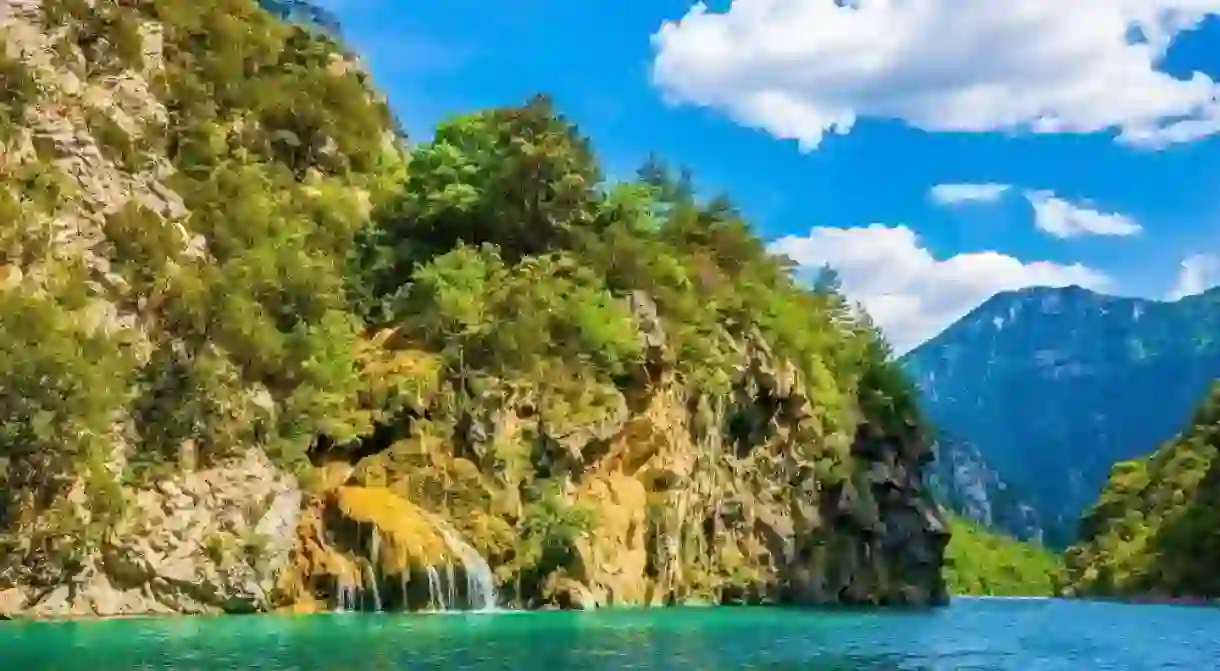11 Photogenic Spots in the South of France

The South of France is a photographer’s dream, offering the chance to snap historic castles, lush vineyards, fluctuating beachscapes and Europe’s answer to the Grand Canyon. Here are 11 of the most photogenic spots you’ll find in the region.
Gorges du Verdon
The Verdon Gorge river canyon is more than 25km long and, in some places, 700 metres deep. It’s a favourite for rock climbers, canyoners, kayakers and swimmers during the summer months, but the winding roads around its rim also offer ample photo opportunities. The colour of the water makes for dramatic shots.

Calanques/Cassis
The Calanques are inlets carved into the cliffs by the sea along the coast on either side of Marseille. Hike or take a boat for the best photos, including shots of the fishing village of Cassis, a favourite tourist spot. Take pictures of local maritime life, water jousting (when in season), busy beaches and the rugged landscape in all its natural beauty.
Avignon
Avignon is a photographer’s delight. In the 14th century, the Catholic Church decided to move the papacy to Avignon to quell civil unrest. They built a large palace for the pope on the site of an old bishop’s home. The result is the largest medieval gothic palace in the world. Just beyond it is the famous half bridge of Avignon that stretches over the river Rhône.

Villefranche-sur-Mer
The city of Villefranche-sur-Mer is often overlooked for Nice, its immediate neighbour, but the beautiful colours of the buildings against the sea make it a photographer’s dream. For this reason, it’s used as a backdrop in many movies, notably James Bond.

Gordes
The hilltop village of Gordes has a lively, rebellious history, and the citizens were even honoured by the French government for their part in the French Resistance during WWII. After the war, the village attracted literary and artistic types. Gordes has maintained its character, despite the influx of tourists.

Pont du Gard
For Roman ruins, you could do much worse than Pont du Gard, just outside Avignon. It’s a UNESCO heritage site, and, beyond marvelling at the Romans’ engineering capabilities, it’s a sublime backdrop for any photographer. It can get busy in the summers, so head out early to get shots without the crowds.

Porquerolles
The small island of Porquerolles is in the Îles d’Hyères, near Toulon. It’s a great place to get pictures of rustic life. As it’s car-free, this is a rare opportunity to take photos of a lifestyle that is hard to find elsewhere.

Provence Lavender Fields
Provence is well known for its lavender fields. Although it’s somewhat of a cliché for holiday snaps, people flock here to get photos. The challenge is taking a photo without anyone else in the background, especially other photographers.

Menton
Menton is a small town on the French Riviera and is nicknamed “the pearl of France”. It is as close to the Italian border as is possible whilst still technically being in France, though it was actually run by the principality of Monaco until the French Revolution, was then seized by the Italians in WWII and then inhabited by the Nazis until it was liberated. This small town with a multicultural history is a great backdrop for photos.

Ménerbes
The walled village of Ménerbes, at the foot of the French Alps in the Luberon, gained recognition after author Peter Mayle wrote his best-seller, A Year in Provence, while living there. The debate continues as to whether locals were upset by their depictions in the book and by the influx of British people that followed. Ménerbes is a classic example of picturesque Provençal villages and a great place for taking photos.

Château d’If
Just a 10-minute ferry ride off the coast of Marseille sits the infamous Château d’If. It was originally built as an island fortress in the 16th century to protect Marseille from potential invasion and was later turned into a prison, as the currents are very strong and kept prisoners from escaping. It is also the setting of Alexandre Dumas’s The Count of Monte Cristo. Today, the castle is a wonderful place to take pictures of old monuments against the colours of the Mediterranean Sea.














